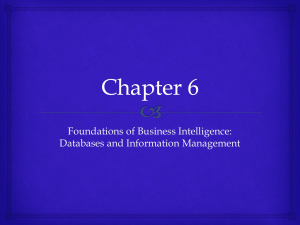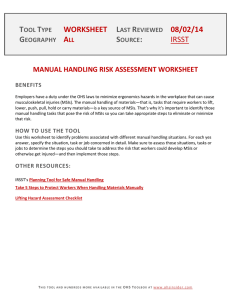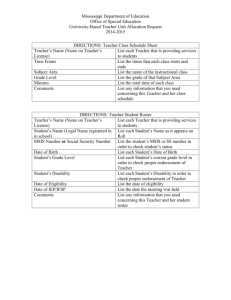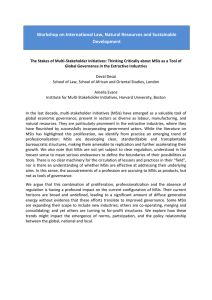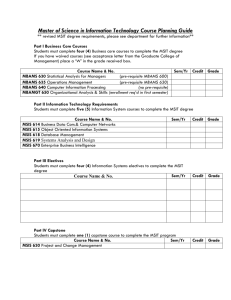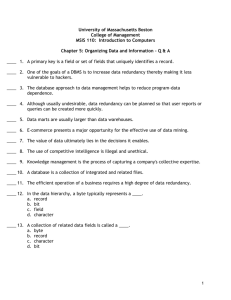MARIST COLLEGE
advertisement
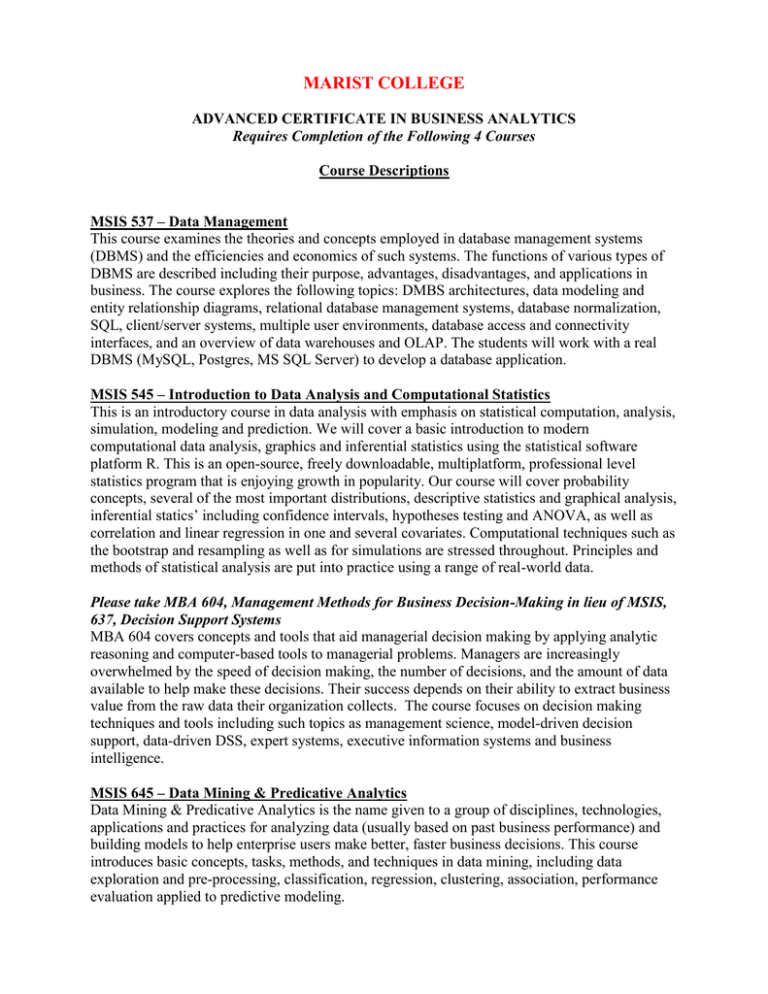
MARIST COLLEGE ADVANCED CERTIFICATE IN BUSINESS ANALYTICS Requires Completion of the Following 4 Courses Course Descriptions MSIS 537 – Data Management This course examines the theories and concepts employed in database management systems (DBMS) and the efficiencies and economics of such systems. The functions of various types of DBMS are described including their purpose, advantages, disadvantages, and applications in business. The course explores the following topics: DMBS architectures, data modeling and entity relationship diagrams, relational database management systems, database normalization, SQL, client/server systems, multiple user environments, database access and connectivity interfaces, and an overview of data warehouses and OLAP. The students will work with a real DBMS (MySQL, Postgres, MS SQL Server) to develop a database application. MSIS 545 – Introduction to Data Analysis and Computational Statistics This is an introductory course in data analysis with emphasis on statistical computation, analysis, simulation, modeling and prediction. We will cover a basic introduction to modern computational data analysis, graphics and inferential statistics using the statistical software platform R. This is an open-source, freely downloadable, multiplatform, professional level statistics program that is enjoying growth in popularity. Our course will cover probability concepts, several of the most important distributions, descriptive statistics and graphical analysis, inferential statics’ including confidence intervals, hypotheses testing and ANOVA, as well as correlation and linear regression in one and several covariates. Computational techniques such as the bootstrap and resampling as well as for simulations are stressed throughout. Principles and methods of statistical analysis are put into practice using a range of real-world data. Please take MBA 604, Management Methods for Business Decision-Making in lieu of MSIS, 637, Decision Support Systems MBA 604 covers concepts and tools that aid managerial decision making by applying analytic reasoning and computer-based tools to managerial problems. Managers are increasingly overwhelmed by the speed of decision making, the number of decisions, and the amount of data available to help make these decisions. Their success depends on their ability to extract business value from the raw data their organization collects. The course focuses on decision making techniques and tools including such topics as management science, model-driven decision support, data-driven DSS, expert systems, executive information systems and business intelligence. MSIS 645 – Data Mining & Predicative Analytics Data Mining & Predicative Analytics is the name given to a group of disciplines, technologies, applications and practices for analyzing data (usually based on past business performance) and building models to help enterprise users make better, faster business decisions. This course introduces basic concepts, tasks, methods, and techniques in data mining, including data exploration and pre-processing, classification, regression, clustering, association, performance evaluation applied to predictive modeling.

